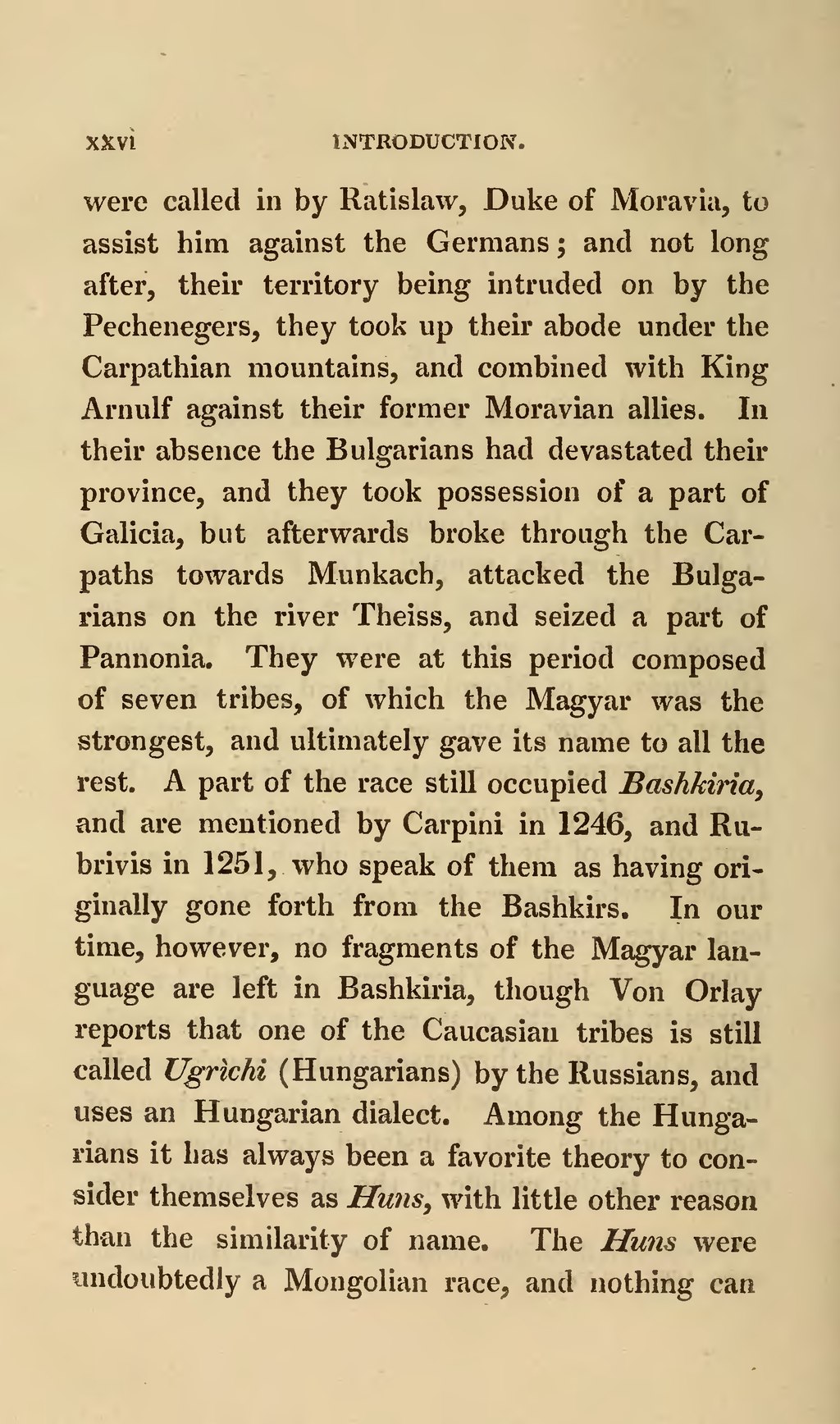were called in by Ratislaw, Duke of Moravia, to assist him against the Germans; and not long after, their territory being intruded on by the Pechenegers, they took up their abode under the Carpathian mountains, and combined with King Arnulf against their former Moravian allies. In their absence the Bulgarians had devastated their province, and they took possession of a part of Galicia, but afterwards broke through the Carpaths towards Munkach, attacked the Bulgarians on the river Theiss, and seized a part of Pannonia. They were at this period composed of seven tribes, of which the Magyar was the strongest, and ultimately gave its name to all the rest. A part of the race still occupied Bashkiria, and are mentioned by Carpini in 1246, and Rubrivis in 1251, who speak of them as having originally gone forth from the Bashkirs. In our time, however, no fragments of the Magyar language are left in Bashkiria, though Von Orlay reports that one of the Caucasian tribes is still called Ugrichi (Hungarians) by the Russians, and uses an Hungarian dialect. Among the Hungarians it has always been a favorite theory to consider themselves as Huns, with little other reason than the similarity of name. The Huns were undoubtedly a Mongolian race, and nothing can
Page:Poetry of the Magyars.djvu/48
This page needs to be proofread.
xxvi
INTRODUCTION.
